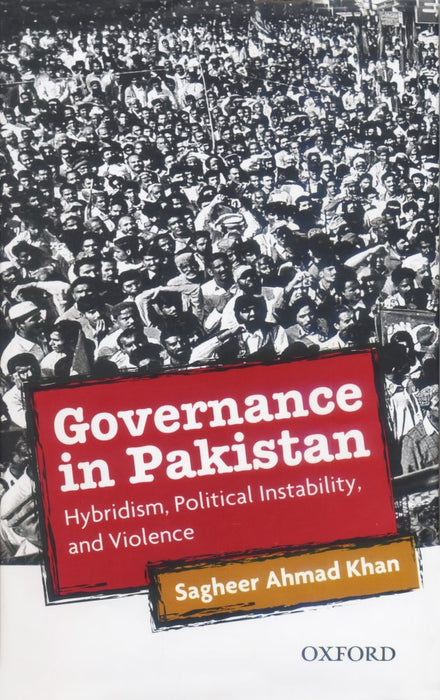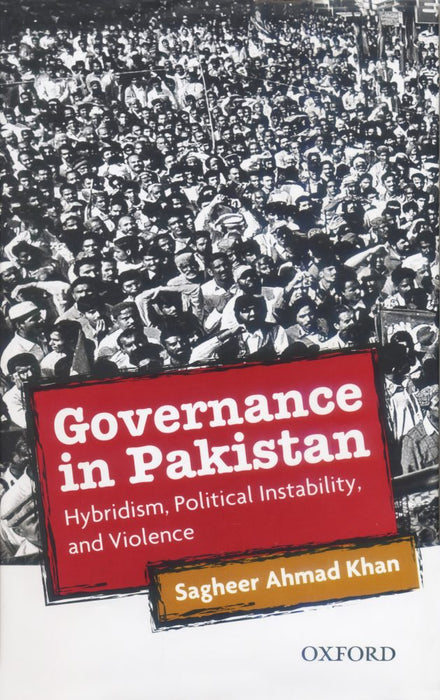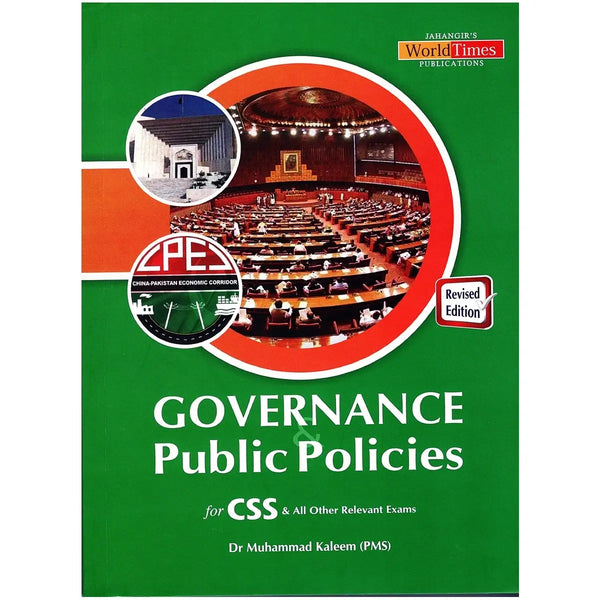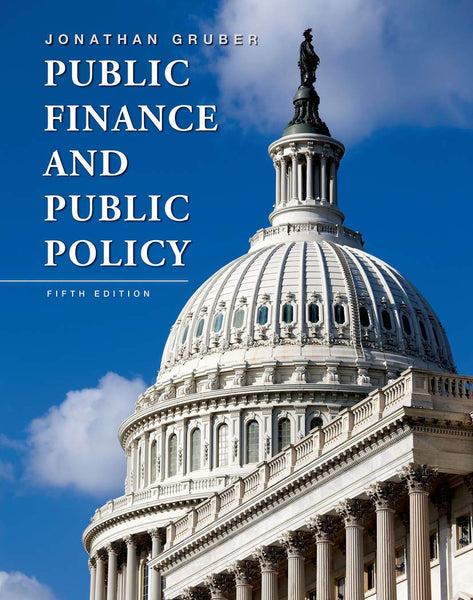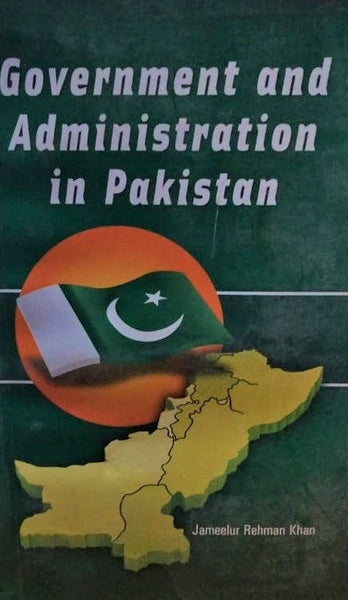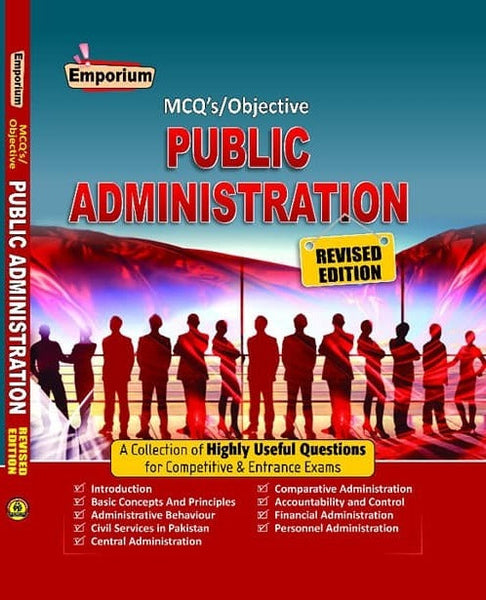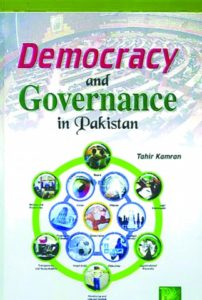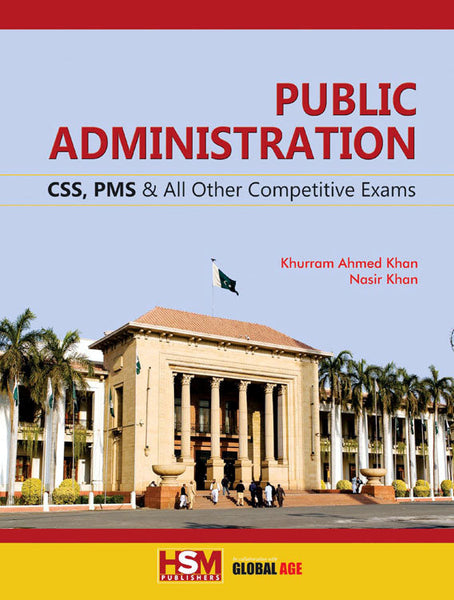Governance In Pakistan By Sageer Ahmad Khan
- Publisher: OXFORD UNIVERSITY PRESS PAKISTAN
- Availability: In Stock
- SKU: 35050
Rs.895.00
Rs.995.00
Tags: Accountability , Advocacy , affordable prices , Anti-Corruption Agencies , Behavioral Reforms , best books , best books online , Best Price , best prices , Best Selling Books , best shop , BestBuy’s , Book Shop , Book shopping , bookshop , bookshop Multan , bookshop near me , bookshop online , bookshop online Multan , bookshopPakistan , Bureaucracy , buy online books , Civil Society , Community Organizations , Convenient Shopping , Decentralization , digital shopping , Domestic Policies , Dynastic Politics , Economic Policies , Electoral Processes , External Support , Foreign Interventions , Foreign Policy , Global Influences , Globalization , good books , good booksonline , Governance , Governance Analysis , Governance Challenges. , Governance Practices , Inclusive Policies , Institutional Reforms , Institutional Structures , International Aid , International Partnerships , Internet Shop , Judicial Independence , Judiciary , Legal Frameworks , Long-Term Planning , Media , Military Influence , NGOs , Non-State Actors , one stop shop , Online Book Shop , ONLINE BOOKS , Online Books Shop , online books store , Online Bookshop , Online Bookshop Pakistan , online bookstore , online shop , online shopping , Online Shopping Pakistan , OnlineShoppingPakistan , Pakistan , Pakistan Bookshop , PakistanBookshop , PakistanOnlineShopping , Political Dynamics , Political Instability , Political Parties , Political Will , price cut , price-friendly Comprehensive , Prosperous Pakistan , Public Institutions , Public Institutions Capacity , Public Participation , Public Services , Public Trust , ReasonablePrice , reduced price , Reform Strategies , Rule of Law , Sageer Ahmad Khan , secure shopping , Service Delivery , Shopping , ShopSmartPakistan , Socio-Economic Factors , Stable Pakistan , Structural Reforms , Virtual Shop
Governance in Pakistan, as analyzed by Sageer Ahmad Khan, delves into the intricate and multifaceted challenges faced by the nation in establishing a robust and effective governance framework. The book explores the historical context, institutional structures, political dynamics, and socio-economic factors that shape the governance landscape of Pakistan. It highlights the persistent issues of corruption, lack of accountability, and weak institutions while also discussing potential reforms and strategies to improve governance. Khan provides a comprehensive analysis of the interplay between state and non-state actors, the role of civil society, and the impact of global influences on Pakistan's governance.
Key Points
1. Historical Context of Governance
Governance in Pakistan cannot be fully understood without considering its historical context. From colonial legacies to post-independence political struggles, the historical backdrop significantly influences current governance structures and practices. The colonial era left behind a bureaucratic system that was designed to serve the colonial masters rather than the local population, leading to a legacy of inefficiency and mistrust.
2. Institutional Structures
The institutional structures in Pakistan, including the executive, legislative, and judicial branches, play a crucial role in governance. The book examines how these institutions function, their interrelationships, and the challenges they face. Issues such as institutional overlap, lack of clarity in roles, and power struggles among institutions are discussed in detail.
3. Political Dynamics
Political dynamics are central to governance in Pakistan. The book explores the complex interplay of political parties, military influence, and electoral processes. It highlights how political instability, frequent changes in government, and the role of dynastic politics impact governance and policy implementation.
4. Socio-Economic Factors
Socio-economic factors, such as poverty, education, and healthcare, are critical to understanding governance issues in Pakistan. Khan discusses how socio-economic disparities affect governance, the provision of public services, and the overall quality of life for the citizens. The impact of economic policies and their implementation on governance is also analyzed.
5. Corruption and Accountability
Corruption is a pervasive issue that hampers effective governance in Pakistan. The book delves into the roots of corruption, its manifestations in various sectors, and the challenges in establishing accountability. It discusses the role of anti-corruption agencies, legal frameworks, and the effectiveness of measures taken to curb corruption.
6. Role of Judiciary
The judiciary plays a vital role in governance by upholding the rule of law and ensuring justice. Khan examines the strengths and weaknesses of the judicial system in Pakistan, including issues of judicial independence, efficiency, and public trust. The book also looks at landmark judicial interventions and their impact on governance.
7. Civil Society and Non-State Actors
Civil society and non-state actors, including NGOs, media, and community organizations, significantly influence governance. The book highlights their roles in advocacy, service delivery, and holding the government accountable. It also discusses the challenges these actors face in operating within the political and regulatory environment of Pakistan.
8. Impact of Global Influences
Global influences, such as international aid, foreign policy, and globalization, affect governance in Pakistan. Khan explores how these external factors shape domestic policies, economic strategies, and governance practices. The book analyzes the benefits and drawbacks of foreign interventions and international partnerships.
9. Reform Strategies
The book proposes various reform strategies to improve governance in Pakistan. These include institutional reforms, anti-corruption measures, decentralization, and enhancing the capacity of public institutions. Khan emphasizes the need for a holistic approach that addresses both structural and behavioral aspects of governance.
10. Future Prospects
Future prospects for governance in Pakistan are contingent on several factors, including political will, public participation, and external support. The book discusses potential scenarios and the pathways to achieving better governance. It stresses the importance of sustained efforts, long-term planning, and inclusive policies to ensure a stable and prosperous Pakistan.
In conclusion, "Governance in Pakistan" by Sageer Ahmad Khan provides a detailed and insightful analysis of the challenges and opportunities in improving governance in the country. By addressing historical, institutional, and socio-economic factors, and proposing comprehensive reform strategies, the book serves as a valuable resource for policymakers, scholars, and anyone interested in the governance of Pakistan.
════ ⋆★⋆ ════
Writer ✤ Sageer Ahmad Khan
Publisher ✤ Oxford University Press Pakistan

